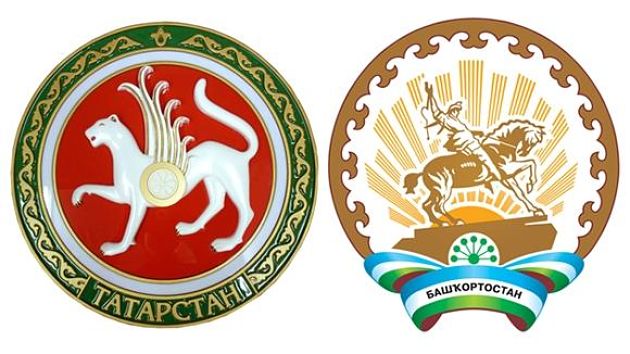Almost simultaneously, Russian security forces have launched an attack on the political symbols of the Tatar and Bashkir republics. The presence of these symbols in the fictitious “Russian Federation” is an irritant to those who mistakenly call themselves “federalists” but who are actually destroying federalism in order to restore a “united and indivisible Russia” with provinces instead of republics.
It has become known that on January 15, the Procurator’s Office of Tatarstan issued a document under the signature of the head of the department of supervision over the implementation of federal legislation, M.M. Sharova, in which it is stated that the existence of the position of the president in the republic contradicts Russian legislation. It is argued that “the name of the specified position cannot contain words or phrases that make up the name of the head of state – the President of the Russian Federation”. It should be recalled that during the presidency of Boris Yeltsin, the founder of the Russian Federation, there were no problems with the presidents of the republics in the Russian Federation – all of them were headed by presidents, which is logical, considering that in Article 5 of the Russian Constitution they are referred to as “states” in brackets. These problems began only with Vladimir Putin, who began to deprive the republics of their powers, forced all the peoples of the Russian Federation to switch to the Cyrillic alphabet (previously Tatarstan was written in the Latin script, which was more convenient for Turks and did not bother anyone), and appointed Moscow deputies to key positions instead of elected regional leaders.
As a result, today all republics have capitulated on this issue and renamed their presidents “heads”, except for Tatarstan. And now the Prosecutor’s Office declares that it will seek “to activate the work of republican authorities to bring certain provisions of the Constitution of the Republic of Tatarstan into line with federal legislation”. However, those who think that the problem can be solved by sacrificing such a formality as the position of the president of the republic are mistaken.
Almost simultaneously with the demand to change the name of the president to the head, the “federalists” managed to dig up… a long-standing monument, and in St. Petersburg, to be precise. Thus, the Prosecutor General’s Office of the Russian Federation demanded that the leadership of St. Petersburg State University remove the bust and museum of Ahmet Zakir Validi, the founder of the First Bashkir Republic and a participant in the Russian democratic federalist movement during the Great Patriotic War.
“The placement of a bust of a person who during the Great Patriotic War spread ideas about the creation of a state based on national characteristics and the superiority of one nation over others, which is a criminal offense under Russian legislation, as well as the ‘Ahmet Zaki’ Museum on the territory of the university, testifies to the glorification of the actions of accomplices of Nazi criminals and contradicts legislation aimed at combating extremist activities,” the Prosecutor General’s order reads.
That is, if you read carefully, Validi is not even accused of “collaboration with the Nazis”, as is usually done, because the prosecution knows very well that there is no evidence for this. Therefore, he is simply accused of continuing to advocate the revival of Bashkir statehood, which the Bolsheviks (as well as the Putinists) turned into a fiction during the holy “Great Patriotic War”.
Can one believe in such a coincidence of two steps of the prosecutor’s office against the political symbols of the Tatar and Bashkir republics, let us emphasize, republics within Russia? Of course not. It is obvious that simultaneously with the order to cleanse the political space of the opposition, the “federalists” were given the order to suppress the remnants of national self-sufficiency of the peoples of the Russian Federation, especially the Muslims. This is a clear confirmation of why attempts by individual Muslim activists to ally themselves with the authorities in the fight against the far from ideal Russian opposition are fundamentally mistaken.

